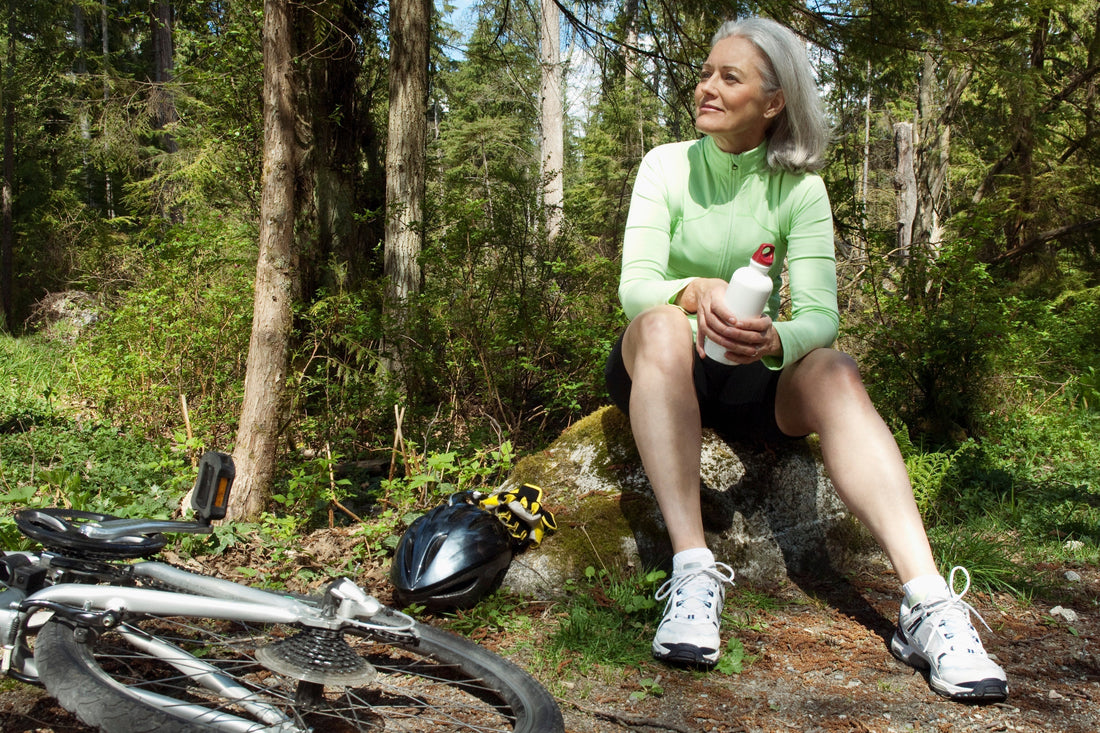
The Importance of Bone Health for Women Over 50
Share
Bone health becomes especially critical for women over 50, as they face an increased risk of osteoporosis and fractures. With age, hormonal changes - particularly the decline in estrogen during menopause - can accelerate bone loss, making fractures more likely.
Women play a vital role in families and society across cultures. Many over 50 juggle responsibilities as caregivers, professionals, and providers preparing for retirement. However, fragility fractures can significantly impact their independence and quality of life, limiting mobility and daily activities.
Most of us know a friend or family member who has suffered an osteoporotic hip fracture - an injury that often leads to long-term loss of mobility and independence. Prioritizing bone health and taking preventative measures can help women stay strong, active, and in control of their future.

Of the approximately 300,000 people in the United States who suffer a hip fracture each year, 75,000 or one in four die within a year following the injury. Another quarter lose their ability to take care of themselves and live independently, necessitating a move into a nursing home or assisted living facility. The remaining 150,000 or half of fracture patients never regain their previous mobility, and six months following a fracture only 15% of patients can walk across the room without assistance. Considering women are twice as likely as men to experience a fracture, these statistics overwhelmingly impact women.

In order to promote bone health for women over 50, here are some important tips to remember and implement:
- Calcium intake: Ensure you consume plenty of calcium-rich foods, such as dairy products, leafy greens like broccoli and kale, fortified plant-based milks, and calcium supplements if necessary. The recommended daily intake of calcium for women over 50 is around 1,200 mg.
- Vitamin D: Vitamin D is essential for calcium absorption. Spend some time in the sun and consume vitamin D-rich foods like fatty fish (salmon, mackerel), fortified dairy or plant-based milk, and supplements if necessary. The recommended daily intake of vitamin D is 800 to 1,000 International Units (IU).
- Regular exercise: Engage in weight-bearing exercises such as walking, jogging, dancing, and resistance training. These activities can stimulate bone growth and maintain bone density. Aim for at least 30 minutes of weight-bearing exercise per day.
- Quit smoking: Smoking can contribute to bone loss, so quitting smoking can help improve bone health and maintain bone density.
- Limit alcohol and caffeine: Excessive alcohol and caffeine intake can negatively impact bone health by interfering with your body’s ability to absorb calcium. Limit consumption of both caffeine and alcohol to protect your bones.
- Maintain a healthy weight: Bone loss and a higher risk of fracture is associated with being underweight. A woman with a BMI of 20 versus a BMI of 25 is twice as likely to experience a fracture. Women with a history of anorexia nervosa or another eating disorder are at higher risk of fracture and osteoporosis, so ensure your doctor is aware of your full medical history. Consume a well-balanced diet sufficient in calories and key nutrients for healthy bones and muscles.
- Balance your diet: Ensure your diet is well-balanced with adequate nutrients, including vitamin K, magnesium, phosphorus, and others essential for bone health. A diet rich in fruits, vegetables, protein, and whole grains provides essential nutrients, antioxidants, and minerals that contribute to bone health. You can read more about healthy nutrition and lifestyle habits for protecting your bone health here.
- Regular bone density screenings: Women over 50 should consider bone density testing to assess their bone health and risk of osteoporosis. Read more about diagnosing osteoporosis and different types of diagnostic testing and screening here.
- Hormone therapy: In some cases, hormone therapy may be recommended for managing menopausal symptoms and supporting bone health. However, this should be discussed with a healthcare professional as hormone therapy carries potential risks and benefits.
- Consult your healthcare provider: If you have concerns about your bone health or risk of developing osteoporosis, speak with your healthcare provider. They can assess your individual situation, provide personalized recommendations, and, if necessary, prescribe medications to improve bone density.
-
Fall prevention: Take precautions to prevent falls as they can lead to fractures, which can have serious or even life-threatening consequences for people with reduced bone density. Fall-proof your home environment, and look into wearing hip protection.
Remember, bone health is a lifelong concern, and it’s never too late to start taking steps to support your bones. By adopting a healthy lifestyle and seeking medical advice as needed, women over 50 can maintain strong bones and reduce the risks of fractures and osteoporosis.
Think about hip protection for extra peace of mind as you protect your bone health and avoid risk of fracture.
